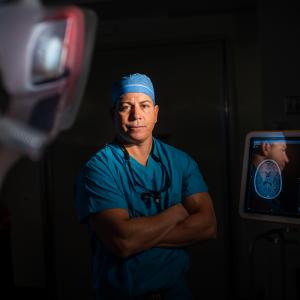Family Travel Clinic Educates College Students Traveling & Studying Abroad

Photo: Peter Dazeley/Getty
NYU Winthrop Hospital’s Family Travel Clinic held an educational forum on travel and safety precautions for students studying and traveling abroad. The forum was attended by students from New York Institute of Technology (NYIT) and Long Island University (LIU), along with faculty. The event, which took place yesterday on NYIT’s Old Westbury campus, not only covered general safety tips but addressed health risks endemic to specific regions of the world as well as little known facts regarding travel safety—like the fact that different types of mosquitoes bite at different times of the day, not necessarily just dawn and dusk. These topics were all part of the Family Travel Clinic’s comprehensive approach to travel safety that includes education, vaccinations, and preventative health measures to make trips abroad as safe as possible.
“Studying or traveling abroad can expose students to a host of issues including infectious diseases, tainted food and water, altitude sickness, and more,” said Theresa M. Fiorito, MD, director of the Family Travel Clinic at NYU Winthrop Hospital. “Our goal is to impart useful knowledge to help prevent injuries and illness, and we tailor our advice to the specific country or region to which a student is traveling.”
More than 325,000 U.S. college students study abroad each year, a number on the rise as students increasingly seek international and multicultural experiences in order to better compete in a global marketplace. While Europe remains a top destination for many, China, Australia, and Costa Rica also rank among top-10 choices and, interestingly, Cuba has experienced the highest rate of growth among study abroad destinations. LIU and NYIT students will also attend study abroad programs in Belize, the Dominican Republic, Ghana, Haiti, Italy, Peru, Spain, Tanzania, and Trinidad.
“Our study abroad programs help to enrich our students’ education and opens their eyes to a world of possibilities. This forum provided many tips to ensure that those experiences will be safe and enjoyable ones,” said Dr. Lillian Butungi Niwagaba, the director of the NYIT Center for Global Health.
Added Dr. Richard H. Nader, the chief research and international officer at Long Island University, “Long Island University is diligent about preparing our students for their studies abroad, and the expert advice provided by NYU Winthrop’s travel medicine specialist is a valuable addition to that well-rounded preparation.”
Dr. Fiorito offered the following advice:
- Consult with a travel medicine specialist for necessary vaccines and medications at least four to six weeks prior to departure.
- Pack a travel health kit with prescriptions and over-the-counter medicines (enough to last the entire trip duration, plus extra), first aid supplies, condoms, and health insurance card. Dr. Fiorito points out that students should make sure their medicines are permitted and properly packaged for travel to their destination. Medicines commonly prescribed in the U.S. may be prohibited or unavailable in the host country.
- Take care when indulging in local cuisine in developing countries, including eating only fully cooked food that is served hot.
- To avoid diarrhea in areas with questionable water quality, Dr. Fiorito advises against eating raw vegetables or fruits unless you can peel them yourself. “Boil it, cook it, peel it, or forget it,” she says. “Forgo ice cubes, and brush teeth with bottled or boiled water.”
- Be aware that DEET in mosquito repellants will decrease a sunscreen’s SPF absorption if applied together, so apply sunscreen 30 minutes prior to DEET.
- Be wary of petting local animals like stray dogs. A person can get rabies without being bitten, such as through an animal’s saliva infiltrating scratches on one’s hands.
- If you have conditions such as asthma, arrhythmia, or hypertension, check on the “ascent risk” of traveling to high altitudes like Machu Picchu, since reduced oxygen levels can pose serious health risks.
- Use a reputable travel guide or tour company if planning adventure travel activities like scuba diving, surfing, or zip lining.
- Always wear seat belts and be mindful of local transportation regulations. Motor vehicle crashes are the number one cause of death among travelers to foreign countries.
Dr. Fiorito also advises students to enroll in the nearest U.S. embassy or consulate Smart Traveler Enrollment Program to receive safety updates and alerts in the event of an emergency.
Media Inquiries
Anne Kazel-Wilcox
Phone: 516-663-4999
anne.kazel@nyulangone.org

